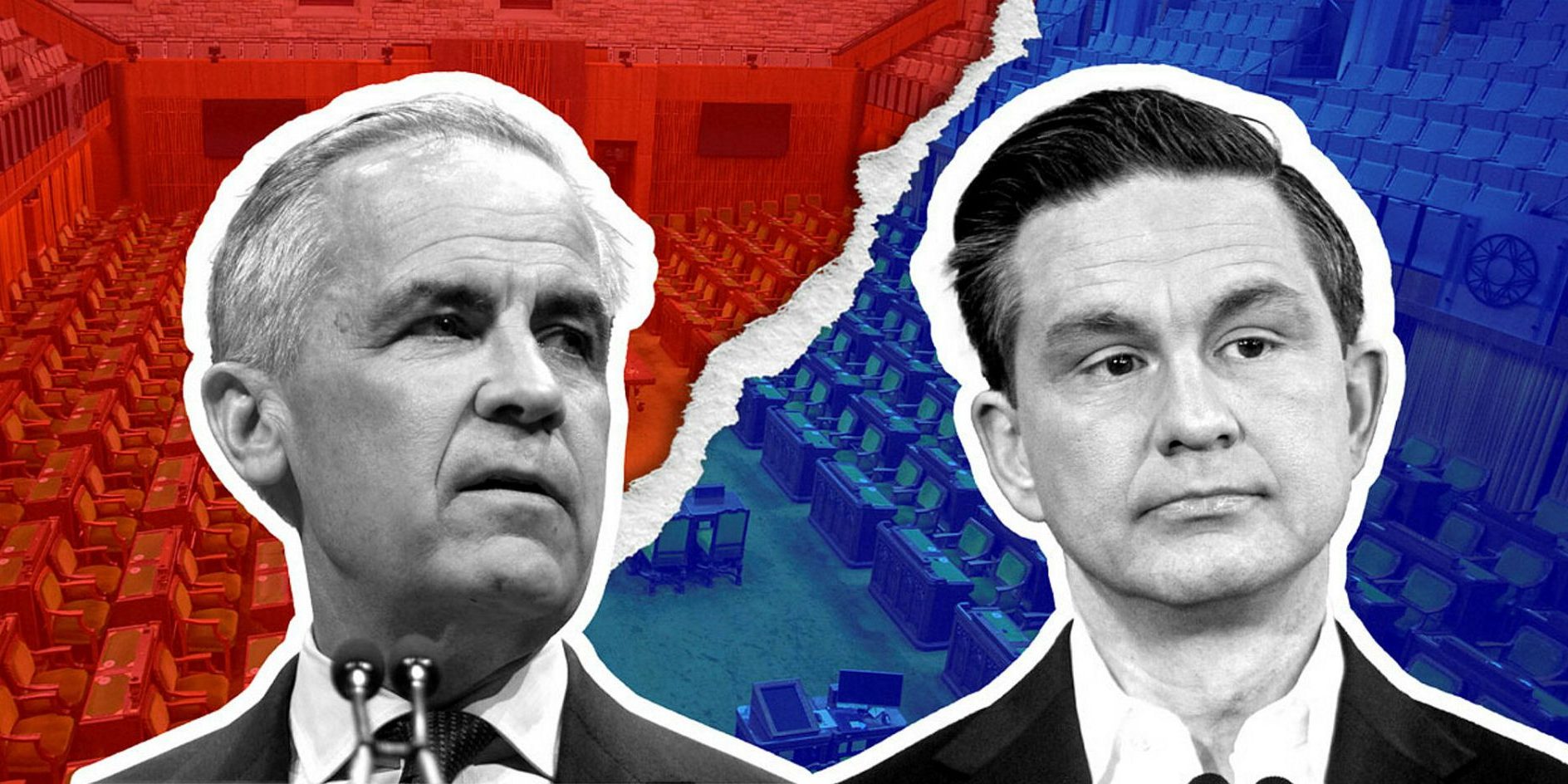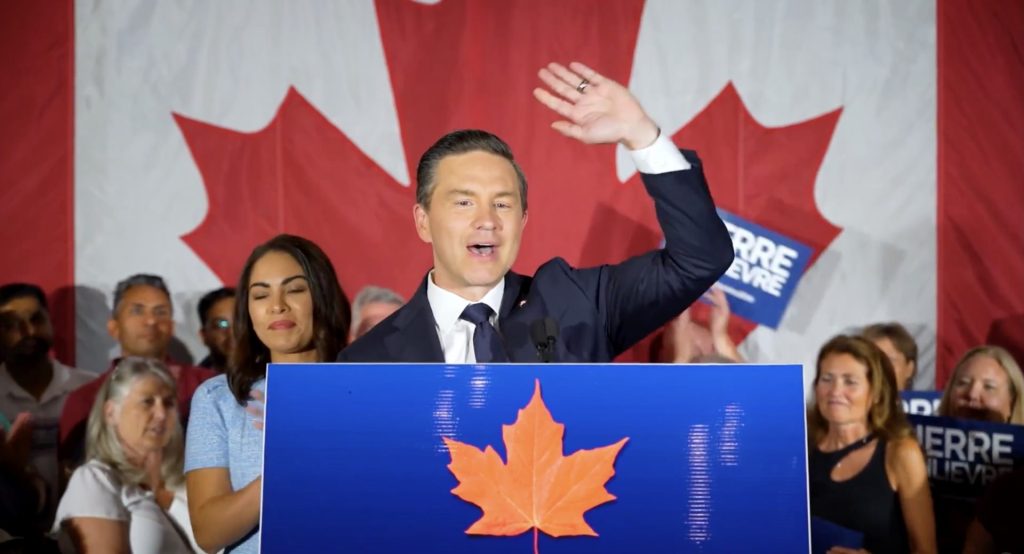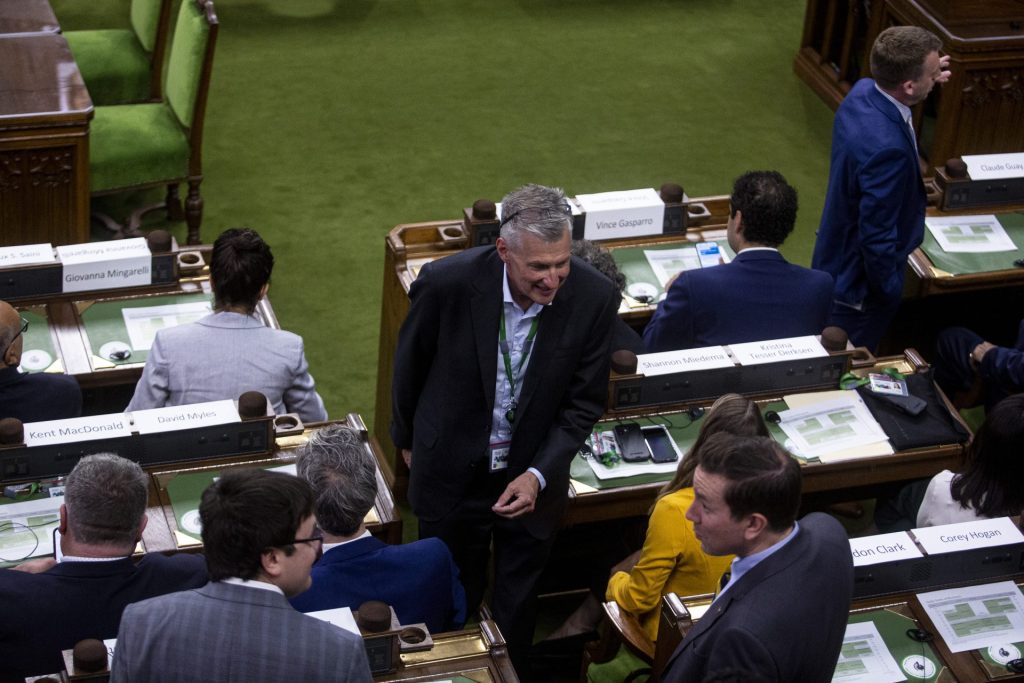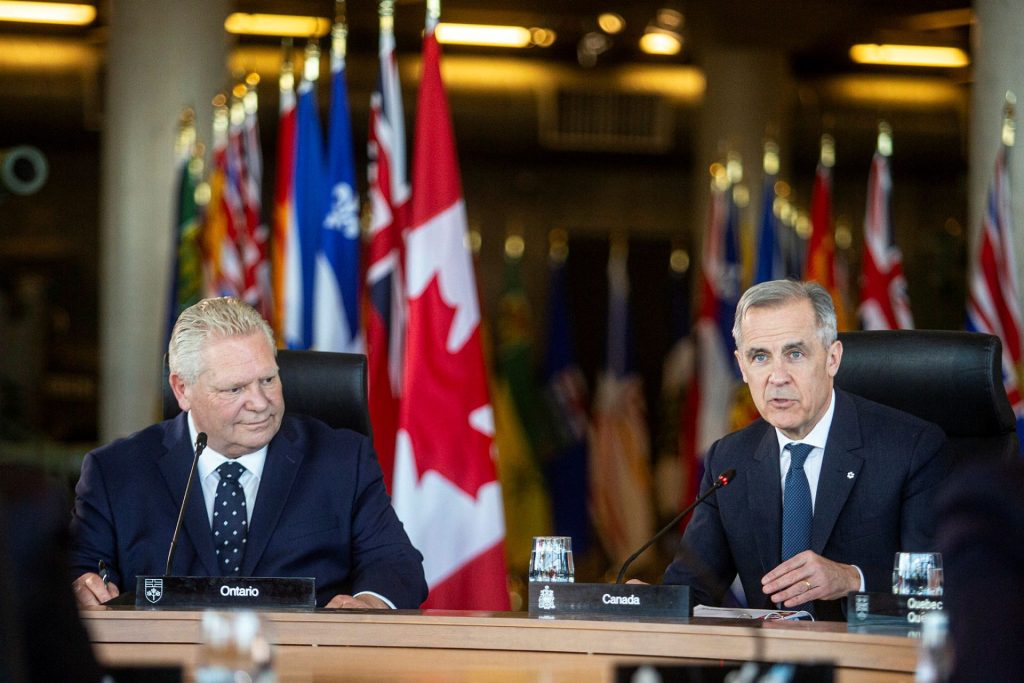‘The road to success is never a straight line’: politicos eye whether re-elected Poilievre tries a new tone in Parliament

Conservative Leader Pierre Poilievre has punched his ticket back into the House of Commons as an Alberta MP, winning just over 80 per cent of the vote in a byelection in one of the safest Conservative ridings in the country.
Now, Poilievre’s challenge will be how he handles that return to Parliament on Sept. 15, said Shakir Chambers, a Conservative strategist and vice-president of consultancy firm the Oyster Group.
“Nobody was doubting Pierre would easily sail to victory in this riding,” he said of the decisive result in Battle River-Crowfoot, Alta., on Aug. 18, but the start of the new legislative session will show if Poilievre can hold the government to account without feeling the need to go for the jugular or “dunk on the Liberals.”
“Has he learned a lesson?” Chambers said. “Was there any humbling experience from losing not only the election, but his seat? If there is, how does he behave moving forward?”

Chambers noted the Liberals took a page from the Conservatives on some election platform points. One of Prime Minister Mark Carney’s (Nepean, Ont.) first orders of business was removing the consumer carbon tax, a Trudeau-era policy Poilievre had railed against for years.
“The problem wasn’t with the policy, it was with the person himself,” Chambers said. “So can he do his communications in a way that really gets Canadians—not just Conservatives—behind him, and also communicates that ‘I’m a government in waiting, I’m a prime minister in waiting’?”
Emotionally addressing a crowd of supporters in Camrose, Alta., on Aug. 18, Poilievre said “the road to success is never a straight line.”
The Conservatives were all but expected to form government in the spring, with a 27-point lead over the Liberals heading into the April election, but Poilievre unexpectedly lost his long-held Ottawa-area riding of Carleton to Liberal Bruce Fanjoy. And while the right-wing party made massive electoral gains, a collapse in the NDP vote in favour of the Liberals meant the Grits held onto government for the fourth straight election.

As the post-election dust settled, then-Conservative MP Damien Kurek stepped down from his rural Alberta riding of Battle River-Crowfoot, making way for Poilievre to run in one of the country’s safest Tory seats. Kurek won with just under 83 per cent of the riding’s vote, and was 71.6 percentage points ahead of the second-place Liberal candidate on April 28.
On byelection night, Poilievre thanked Kurek for his “gracious sacrifice,” and promised to be a “humble servant” for Albertans.
Now, it’s time to see if Poilievre has learned from his time in the penalty box, said Susan Smith, co-founder and principal at Bluesky Strategy Group.
“Will he come back with a more mature tone, and a tone that reflects better how Canadians are feeling?” Smith said in a post-byelection interview. “Because he obviously missed the boat in the federal election.”
Poilievre frequently deployed his attack-dog style and passion for three-word slogans against then-prime minister Justin Trudeau when the two were opposite in the House of Commons, with Question Period often taking an acrimonious bent.

“Poilievre has behaved one way in politics for 20 years,” Smith noted. “We’ll see if losing his seat, losing the election that was almost his … we’ll see if it’s changed his tone.”
She noted Ontario Premier Doug Ford’s call for co-operation between parties after he met with Carney on Parliament Hill on the same day Albertans were Poilievre’s new riding were going to the polls.
“Let’s put our political stripes aside and start working together collectively on large infrastructure projects, on other areas that he can co-operate with the government,” Ford said.
Reporters asked Ford if he had any advice for Poilievre, and the premier replied, “work with the prime minister,” adding he “doesn’t care about political stripes.
“The person I’m working with right now is the prime minister of the day, and as far as I’m concerned, he’s doing a really, really good job, considering the position he’s been put in,” Ford added. “I challenge anyone to try to deal with [U.S. President] Donald Trump, myself included. He’s a different type of cat.”
Given the ongoing trade war and a lack of a deal between Canada and the U.S., Smith said Canadians aren’t in the mood for partisan sniping.
“We’ll have to see if [Poilievre] reflects that mood,” she said, as the tone of the party’s caucus is set by its leader.

Chambers noted there was a degree of co-operation between the Conservatives and Liberals following the federal election, with the Tories supporting some legislation, including Bill C-5, which sets out a framework for “nation-building” projects.
“I think the Conservatives understand the public mood, and will co-operate,” Chambers said. “But they shouldn’t just let the Liberals just steamroll anything they want to move forward.”
Conservative strategist Cole Hogan said housing, crime, immigration, and the cost of living will likely play a prominent role when Poilievre goes head to head with Carney in the House this fall.
After all, “the oppositions’ task is to oppose,” he said. And while Carney may get the benefit of the doubt for a brief period post-election, he’ll soon be expected to deliver results.
“And he’s got a gargantuan task ahead of him,” Hogan said.
Polling data published by Nanos on Aug. 19 showed the widening gap between the Liberals and Conservatives, with Poilievre 27 points behind Carney amongst Canadians polled on their preferred prime minister.
Party-wise, the Nanos polling has the Liberals at 44.4 per cent, Conservatives at 32.4 per cent, and NDP trailing with 11.6 per cent.
However, Chambers said the polling is reflective of Carney’s “honeymoon phase” that might not last, heading into what will likely be a heated fall legislative sitting that could expose fissures within the Liberal Party.
“People on the more progressive left flank might disapprove of how they handled the dispute with Air Canada,” Chambers said, referring to Jobs Minister Patty Hajdu (Thunder Bay—Superior North, Ont.) directing the Canada Industrial Relations Board to end the labour dispute between Air Canada and its flight attendants that grounded planes across Canada and around the world during peak summer travel.
Some more progressive members of the Liberal caucus have said Carney is moving too far to the right, and Chambers said there are concerns Carney won’t be strong enough on climate change.
Poilievre, of course, is very good at pointing out the Liberals’ flaws, Chambers noted.
“There’s just a lot of issues that Carney hasn’t had to deal with yet in such a short legislative session that he will have to deal with come fall,” he said. “Once the shine wears off, can Pierre capitalize on that?”
mglass@hilltimes.com
The Hill Times






 LICENSING
LICENSING PODCAST
PODCAST ALERTS
ALERTS













